10 Countries It’s Super Easy to Emigrate To
We’ve all felt it. That desperate, cloying urge to escape. That semi-primal need to flee our home country and all its madness and never look back, and instead devote ourselves to relaxing on distant beaches / becoming a kung fu master (it’s a tough call). And we’ve also all felt its accompanying feeling: that sad realization that our dreams are but beautiful illusions, and cruel, cruel reality is gonna drag us kicking and screaming back into its stifling embrace any minute.
Or is it? While moving abroad permanently may not be the easiest thing in the world, it’s also not as hard as it at first appears. In some countries, gaining residency is so easy that pieces of cake and falling off logs look fiendishly complicated by comparison. Desperate to escape the madness of Washington or the reaching claws of the IRS? Here’s where you should go.
(Quick note: we’re assuming nobody reading this is filthy rich, so we’ve excluded countries that allow you to buy citizenship for exorbitant funds. But, if you’re interested, the cheapest of them all is the Seychelles at $12,500 USD.)
10. Ecuador
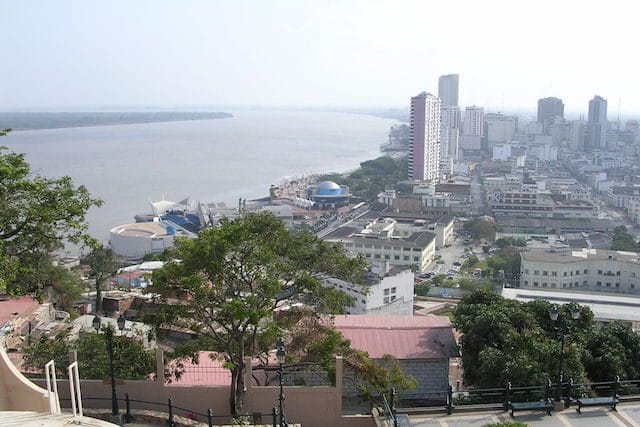
A land of boiling volcanoes, soaring mountain peaks, and old pastel colored colonial towns, Ecuador is exactly the sort of over-romanticized stereotype of Latin America you’ve always secretly held in your head. It’s got beaches. Islands. Mayan ruins. An adorably underperforming soccer team. It’s got a remarkably low cost of living, and the US dollar as a currency.
Sounds great, huh? Well, get this. This little slice of south of the border paradise could be your new home for as little as $800 per month. That’s not costs you gotta pay out. That’s all the income you have to prove you have in order to move to Ecuador.
Technically, this is a requirement for Ecuador’s pensioner visa, not a general one. However, Ecuador doesn’t set minimum age requirements on pensioner visas, and those claiming them don’t need to even prove they have a pension. You’ve just gotta show that $800 will be landing in your bank account every single month for perpetuity and you’re in. This kinda begs the questions as to why they call it a ‘pensioner visa’, but who are we to argue? The low requirement means people with trust funds, compensation pay outs, royalties, and cuts from banking heists are all able to net an easy visa (probably, don’t quote us on that last one).
9. Austria

First things first: Austria is not an option for those who like their homes nice and cheap. The former seat of Habsburg imperial power, Austria is a tiny country that operates a whole lot like a hipster crafts store: small, fascinating to look at, and so expensive you will have to sell at least three organs before you can afford to be there.
Yet Austria does have one thing a hipster store doesn’t have (ok, most hipster stores also don’t have Vienna, or Salzburg, or the Alps, or… y’know what? Just let us run with this). According to The Telegraph, Austria offers over 10 different types of residence permits. The best part? Absolutely none of them require any form of inward investment.
The bad news is that you need to apply for your residence card abroad (i.e. not in Austria). The good news is this doesn’t apply to EU citizens or Americans. If you’re an American, you can just get a D-Visa, giving you up to 6 months’ leave to stay in the country, then go to Austria, secure a job/wife, and then apply for a proper residence visa. Just remember to smile smugly at all those struggling Canadians and Australians as you waltz your way to the front of the immigration line.
8. Belgium
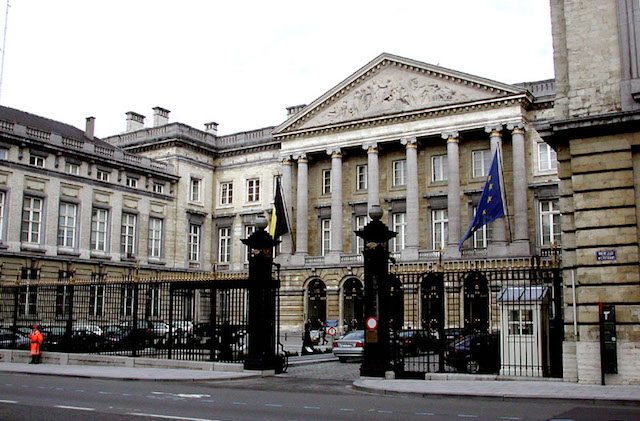
Germany’s go-to country to invade after Poland, tiny Belgium is one of northern Europe’s tiniest states. Slightly smaller than Maryland, it boasts a whole lotta flat and a whole lotta roads. On the other hand, it also has some of the most attractive small towns on the continent, not to mention some of the tastiest beer (ha, suck it, Maryland). It’s also fairly easy to get long-term residency. The one thing you have to do? Get a job.
Yeah, we know. Easier said than done, especially when your CV has Professional Procrastinator listed under “most recent role.” But here’s the thing. Many countries in Europe aren’t cool at the moment with you taking jobs away from locals. In Belgium, not only will they let you apply for work as an outsider, they’ll then offer you a residency permit after just two weeks of employment. This isn’t a permanent residency permit, understand, but it’s certainly a step in the right direction. All you gotta do next is hold onto your job for long enough (it varies by region), and you’ll be laughing all the way to the Belgian citizenship test. The only downside is you need to actually be employable for this plan to work, which certainly disqualifies us.
7. Paraguay
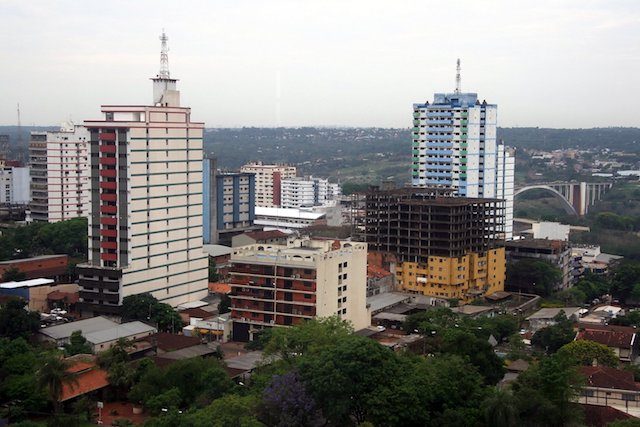
Nothing could be simpler than getting residency in Paraguay. Probably thanks to its terminal obscurity, the government seems desperate to get as many people into the landlocked South American nation as possible. As a result, there’s only one hard and fast requirement. You need to deposit money in a Paraguayan bank. A small amount won’t do, but you don’t have to go too big. Around 35 times the monthly minimum wage is the accepted sum (between $4,500-$5,500 USD). Once you’ve done that, Paraguay is your oyster.
Of course, whether that oyster contains a pearl or just a lump of grit depends heavily on what you’re looking for in your new home. Paraguay is so obscure that it has neighbors who have never heard of it. Try telling the average American you’re moving to Paraguay, and they’ll assume you’ve mispronounced Uruguay (who are we kidding? They’ll think you’ve mispronounced New Jersey). Of the 6 million or so people who live there, at least half of them probably pretend they’re from Argentina. It’s a poor, underdeveloped country surrounded by bigger, way more developed countries. Still, at least it’s cheap.
6. Canada

Like the hippy younger sibling to America’s hard-working grownup, Canada always takes a contrary liberal stance to the USA. That includes on immigration. While America is currently experimenting with making immigration as unattractive as possible, Canada is casting its arms open wide to the surrounding world. Luckily, that includes to you, provided you can prove you’re worth having. Canada’s immigration rules run the gamut from excessively liberal to utterly draconian, depending entirely on how skilled you are.
For those with the skills or education level that Canada needs, there’s an express entry program that’s so swift, it probably amounts to kidnapping. You fill in an online form, which assigns you points for stuff like education level, industries worked in, and whether you are both able to speak French, and willing to put with living in Quebec (of course we’re kidding, Quebecers. Just look at the city you guys get to call your capital!). If you hit a high score on these, plus other stuff like whether you studied in Canada or have Canadian relatives, you’re probably in. All you gotta do next is pony up about $500 CAD ($390 in real dollars).
But what if you’re an uneducated, unwashed slob? Well, there may be hope. Canada has one of the highest proportions of foreign-born citizens in the OECD. Why shouldn’t they take you too?
5. Belize
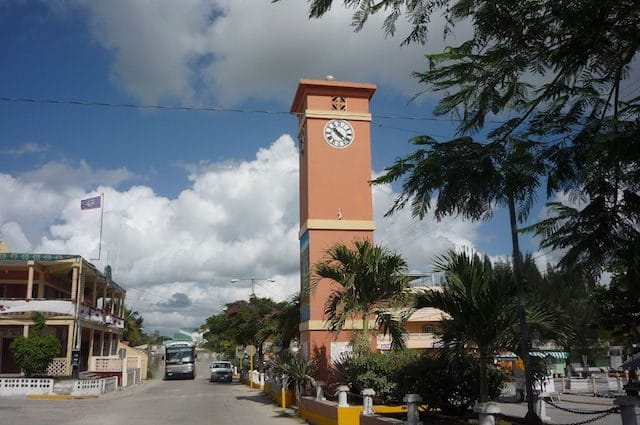
An English-speaking nation in Central America, complete with ultra-low cost of living and the sort of beaches you’d expect to see young David Hasselhoff running down in slow motion? Yeah, this is an actual Place That Exists, and its name is Belize. Wedged awkwardly between Mexico and Guatemala, this pint-sized slice of paradise is barely larger than Wales, and comes with a population smaller than Bakersfield, California, with the added advantage that it’s not actually Bakersfield, California.
So, what’s the trick to setting up shop in this land of palm trees and crystal waters? That’s the best part. You can apply for permanent residency in Belize after only a year there. To stay there for a year, all you have to do is arrive on a 30-day tourist visa, and keep renewing it every 30 days. When you hit the 50 week mark, pay $1,000 and, after jumping through some bureaucratic hoops, you should be in. Just be careful of the requirement some departments have that you leave the country for two weeks every 6 months. Doing so will reset your year-long countdown.
4. Nicaragua

It might be a shock for those who remember 1980s Nicaragua as a place of leftist coups, civil wars and rightwing Contras, but Nicaragua is gorgeous. Nah, seriously. Just check out these pictures. It kinda looks like someone got hold of some leftover bits of paradise God had lying around, tossed them altogether in a big celestial bowl, and scattered the results between two pristine coastlines. Provided you can ignore the politics, Nicaragua is the place you always wanted to go home to.
So, now we’ve sold you on the whole idea, we’ve got some awesome news. Nicaragua runs a retirement program, just like Ecuador. And, just like Ecuador, they take their own entry requirements with a pinch of salt. Provided you can prove an income of $600 a month, you neither have to be old nor, technically, retired.
While most countries don’t let those on retirement visas to work, Nicaragua’s government defines work so loosely you kinda wonder why they bother at all. If you open a restaurant or small hotel, they don’t define it as work. If you get an income working digitally for a non-Nicaraguan company, they don’t define it as work. Wait, what? So… we guess that would include internet list writing? Huh. If you scroll down and the rest of the article is just gifs of us kicking back on golden beaches, you’ll know what’s happened.
3. Panama
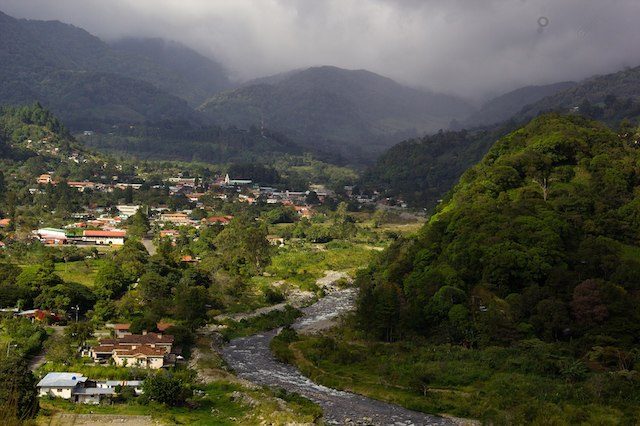
Ah, dang, we’re still here. Well, we guess we should tell you about Panama, then. Technically an independent part of Central America, but in reality looking and feeling like a part of Florida that broke off and floated south, Panama is moving abroad for those who don’t want the hassle and inconvenience that moving abroad usually entails. It’s safe, well developed, a lot of people speak English, and it uses the US dollar. Know what else? Practically anyone can move there with effectively zero effort.
Most Americans that head to Panama do so on the retiree visa, which gives holders massive discounts on a ton of stuff, while only requiring a monthly income of $1,000. But the residency visa for younger workers is almost equally good. Basically, all you gotta do is deposit $5,000 in a Panamanian bank. Then, if you come from one of 47 ‘friendly countries’ (yeah, that includes USA, Canada, UK, New Zealand, Austria, and the EU), you can get the Friendly Nations Visa. All you need is to find a job or open a business in Panama and you’ve got long-term residency. Just beware that a load of people who get this visa are using it as a massive tax dodge.
2. Mexico
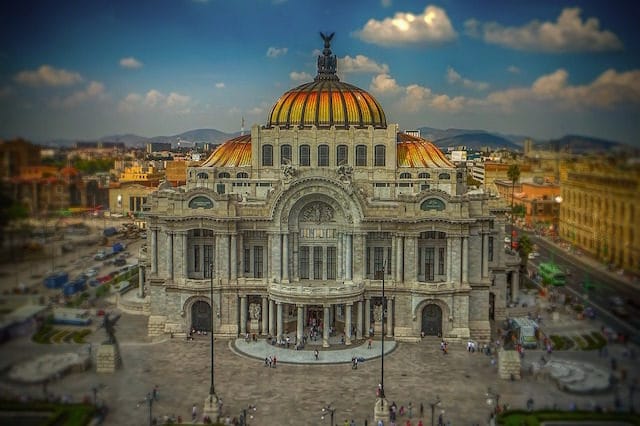
Nothing could be easier than getting permanent leave to remain in Mexico. No, really. Just rock up to the airport/border, and ask to buy an FMM visa. Provided you don’t intend to do any work, the FMM visa allows you to remain in Mexico for 6 months. At that point, you can renew it for another 6 months. Then renew it again. And again. And again, and so on until you finally drop dead. How much does this marvelous, life-changing visa cost? The princely sum of… um, $21.
That’s a lay out of $42 a year to legally kick back in a country of pristine beaches, world class cities, gorgeous colonial towns, and mountain scenery like something out of a dream. Sure, you’re probably gonna need an income to go along with that, but fear not! There are roughly a bazillion Mexican temporary residency visas you can cheaply upgrade to, including some designed for artists, sports players, scientists and retirees.
All of which just leaves one thing to discuss: the drugs. Yeah, Mexico is in quite a grim place at the moment, with the Drug War having killed tens of thousands in the last decade. Whether you think the risk is worth it is up to you; not everywhere is affected, and some towns are essentially drug-violence free. Just maybe make sure not to do any drugs while you’re there, huh?
1. Svalbard (Norway)
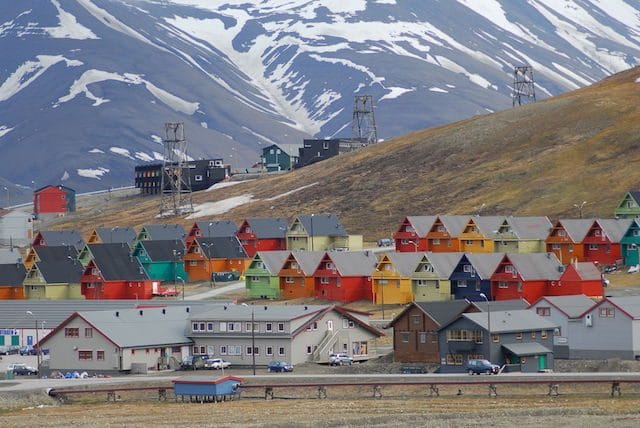
Say whaaaat? You’re telling us that Norway is the easiest country on Earth to move to? The same Norway that requires those who want permanent residency – not even citizenship – to study Norwegian for 250 hours and complete 50 hours of ‘social studies’? That Norway?
Well, actually buddy, no. Not quite. The archipelago of Svalbard (pop: 2,642) is indeed part of Norway, but in the same way that Puerto Rico is part of the US, or Greenland is part of Denmark. A whole lot of important things have been devolved to the Svalbard administration in Longyearbyen, from gun control, to environmental issues, to emergency services, and the issuing of marriage certificates. One of the things that has been devolved is immigration, and Svalbard works on a very different system to Norway. There is no visa regime on Svalbard at all. Literally anyone can move there and settle down without the need for a permit.
The only thing you need to prove is that you have sufficient funds to support yourself after moving there. This is important, because Svalbard is cold. Closer to the North Pole than it is to mainland Norway (itself a very cold country), Svalbard is both freezing and utterly remote. It’s over a thousand miles to the mainland, winters take place in permanent darkness, and hungry polar bears prowl the streets. To cut down on polar bear attacks, unemployment and homelessness are literally illegal, and retirees are deported if they’re considered a drain on society. But hey, at least it’s not your home country, right?
No comments:
Post a Comment